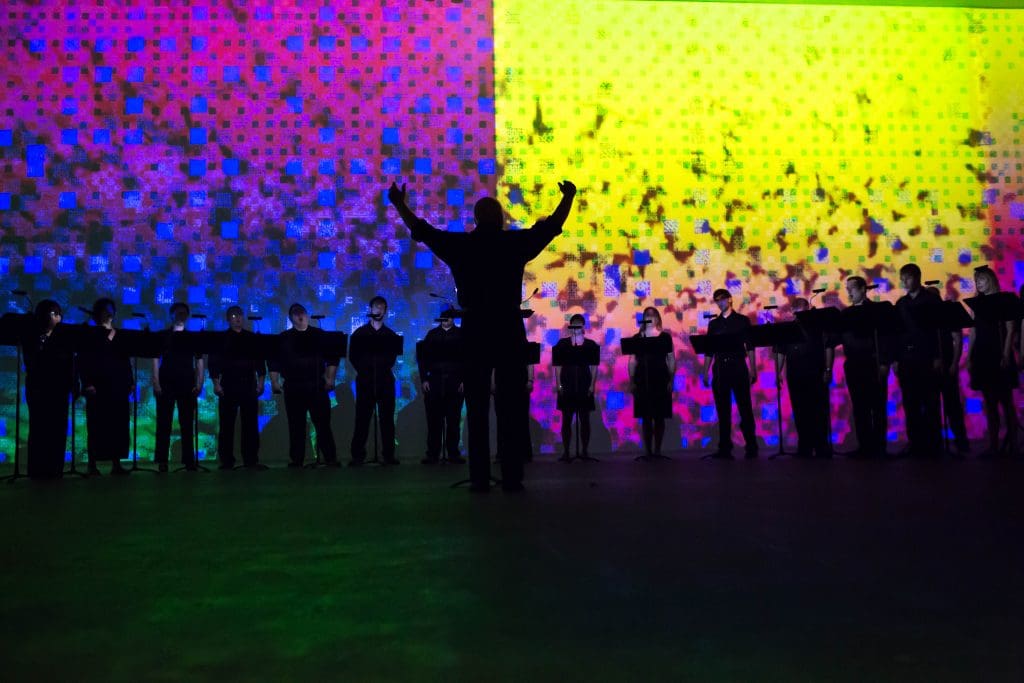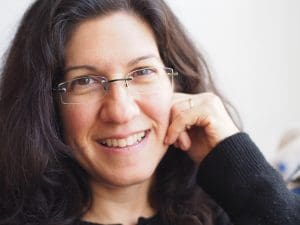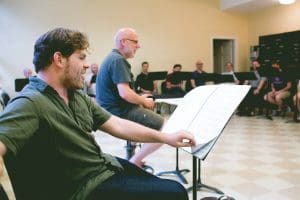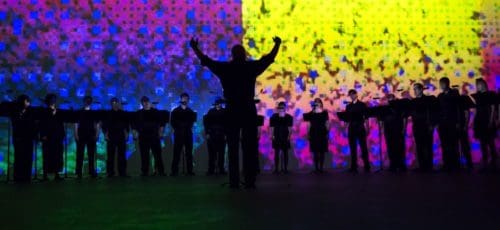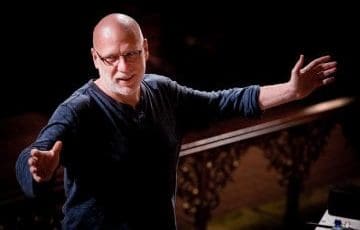Sifting through sounds from the bench: An interview with Jena Osman
Jena Osman is a renowned poet and editor. She has published numerous books and chapbooks and was the co-founder/co-editor of the award-winning literary magazine Chain with Juliana Spahr. Osman currently teaches in the MFA Creative Writing program at Temple University.
Her 2014 book Corporate Relations draws directly from landmark Supreme Court cases to examine and unpack “corporate personhood”—the notion that privately owned corporations should be extended the same rights as individual citizens—revealing its century long development in a manner that is at turns illuminating, humorous, disturbing, and beautifully lyrical. You can check out the book’s opening poem here and purchase a copy from the venerable small press Burning Deck here.
Corporate Relations served as inspiration and source material for Ted Hearne’s stunning composition Sound from the Bench, which will be performed by Philadelphia’s acclaimed new music chamber choir, The Crossing, here at FringeArts on September 11 as part of the 2016 Fringe Festival. FringeArts recently spoke with Osman about the origins of Corporate Relations and her collaboration with Hearne.
FringeArts: What spurred you to write Corporate Relations?
Jena Osman: When Citizens United won its case in 2010 it dawned on people (including myself) that corporations had just won a constitutional right—freedom of speech. There was general political/media outrage about corporations being given rights reserved for people, that the ruling suggested that corporations actually were people. Because this seemed like such a crazy idea, I started to look into it and I discovered that corporations had been racking up a series of constitutional rights since the mid-19th century. I’ve always had an interest in objects that seem human (puppets, automatons, computers that play chess, etc.), and corporate personhood fell in line with that fascination.
FA: How did you arrive at the book’s hybridized form?
Corporate Relations is organized around twelve Supreme Court cases that grant corporations constitutional rights. After reading each case, I pulled out phrases that felt particularly “human” to me; the phrases are in the order in which they appear in the case, and the spacing of those found poems was determined by where the phrase fell on my printed out page of the case. The court case sections are broken up by a series of poems that try to further investigate the increasingly blurry boundary line between the human and the machine; they consider automata, the John Henry story, Fritz Kahn’s amazing illustrations of the human body as a factory, the mechanics of ventriloquism, Frederick Winslow Homer’s “scientific management” strategies, etc.
FA: What was your process for rending such lyricism from what I imagine to be dense legal jargon? Did you find anything inherently poetic about the source material?
JO: I have always been interested in the language of Supreme Court arguments (which probably started thanks to Nina Totenberg’s reporting on NPR). You expect the language of the justices to be “supreme” or beyond human or full of bureaucratic jargon, and yet if you look at the transcripts, there are these very human moments filled with all of the idiosyncrasies of everyday speech. The justices often make these wonderfully wacky analogies in order to make sense of situations. I’ve made use of this amazing store of language in a number of my poems.
FA: How did Sound from the Bench, this collaboration of sorts with Ted Hearne and The Crossing, come about?
JO: I went to the MacDowell Colony to write Corporate Relations in 2012 and my first night there was Ted’s last night (or next to last night) as a resident there. I was not familiar with his work at that point, but we ended up having an epic conversation at the dinner table about appropriation in art. Both of us make use of textual appropriation, often from the political sphere—language you would not normally consider to be useful in an aesthetic context. After describing the project I was planning to work on that month, Ted asked to see it when I was done. I was super pleased when he asked to use some of it for Sound from the Bench. He ended up setting the Citizens United case section to music, as well as some sections of the shorter poems (as well as a fragment of mine from another book). In the same way I was selecting phrases from Supreme Court cases, following my own ear, he was selecting phrases from my work using his.
FA: What were your impressions upon hearing the finished piece?
JO: I was amazed. I couldn’t believe how the words were all honored by the composition. The Crossing is an amazing choir and I got the sense that this wasn’t an easy piece of music to perform. And it’s an incredibly exciting piece. The mix of large choir with electric guitars is nutty in the best way—mixing things that we don’t expect to go together— which feels appropriate for a text that combines Supreme Court decisions and poetry in the face of the unlikely combination of corporations and personhood.

